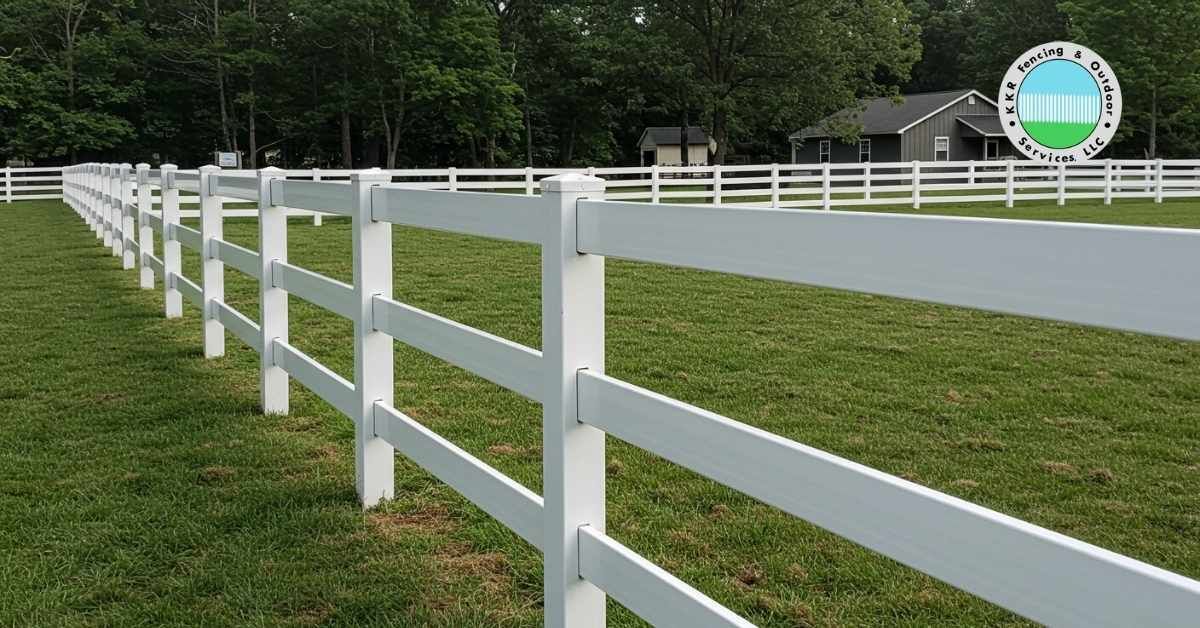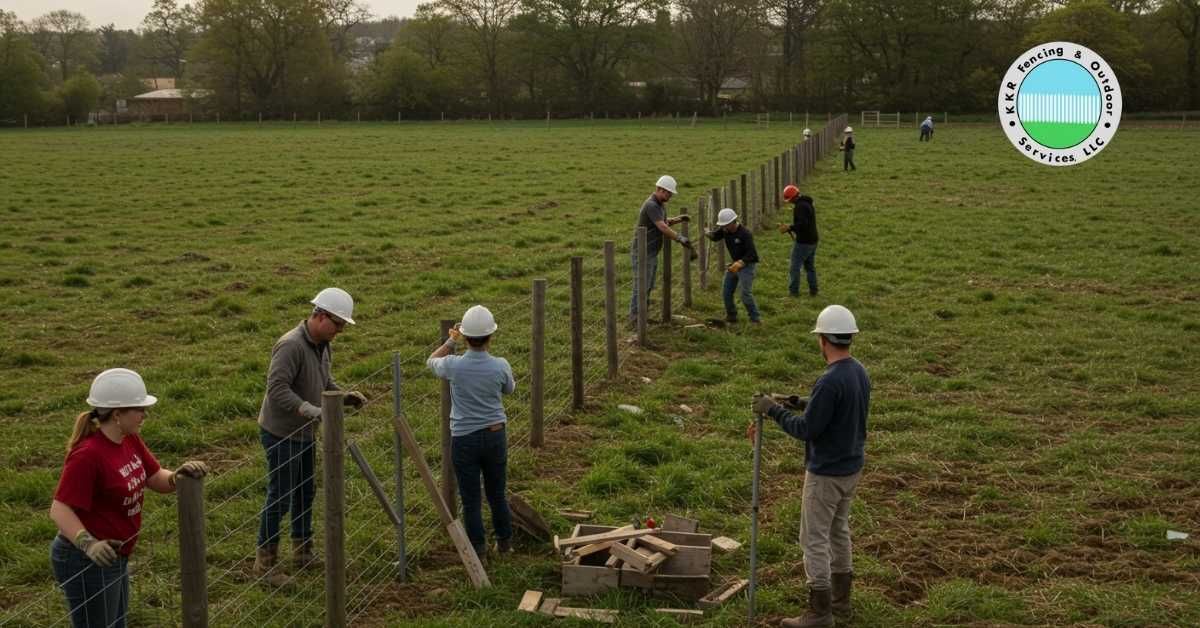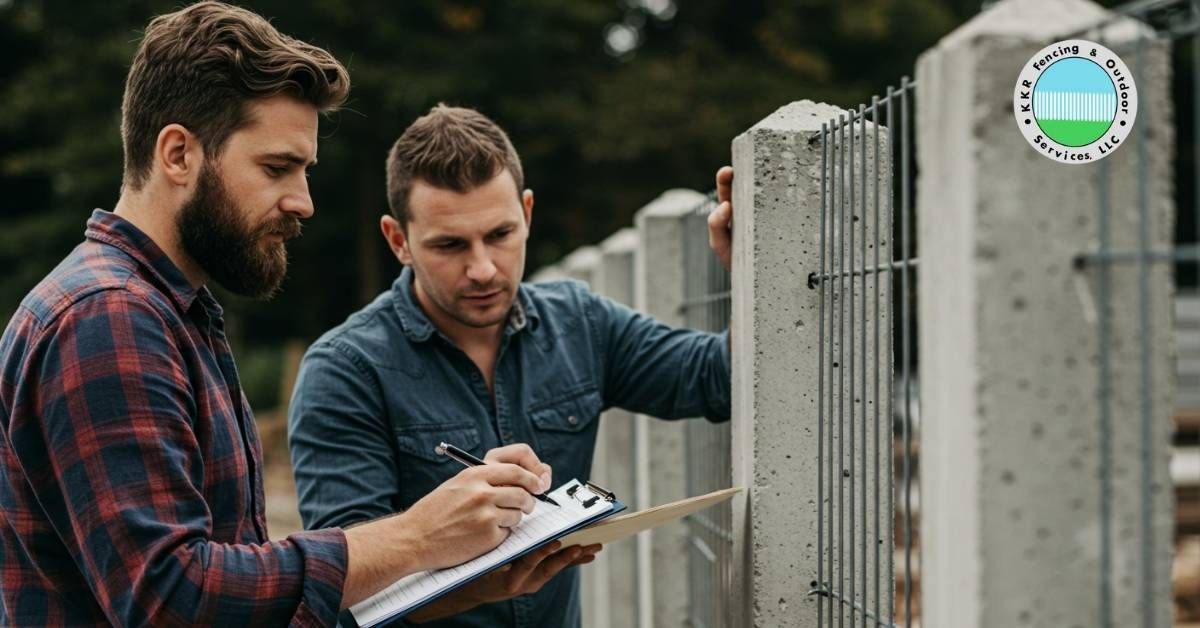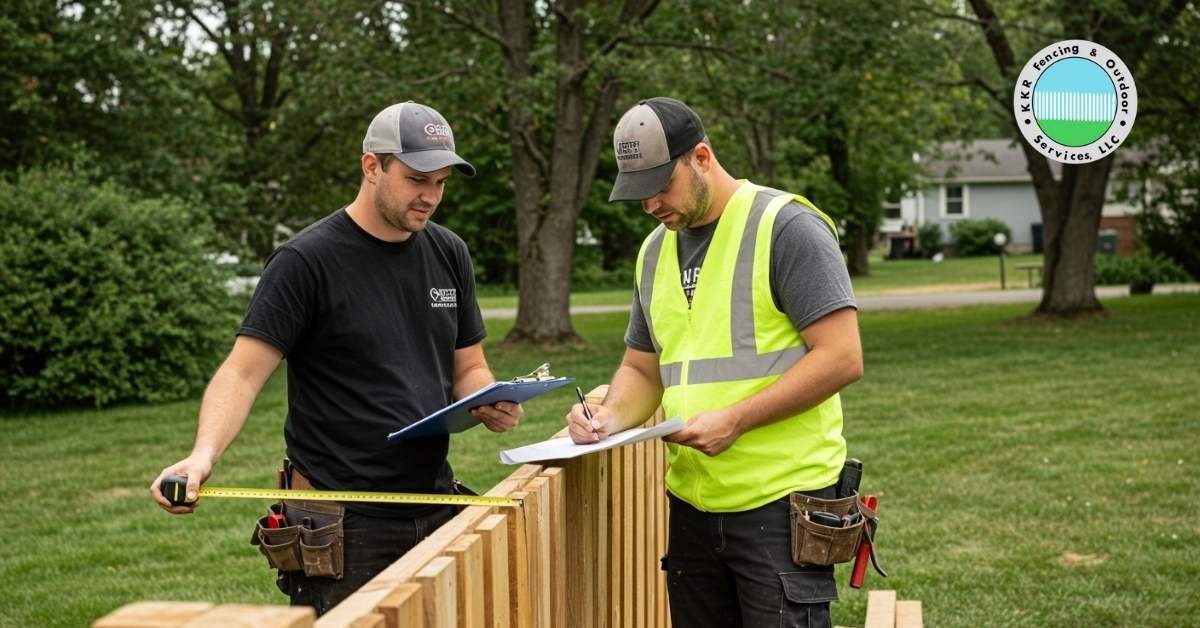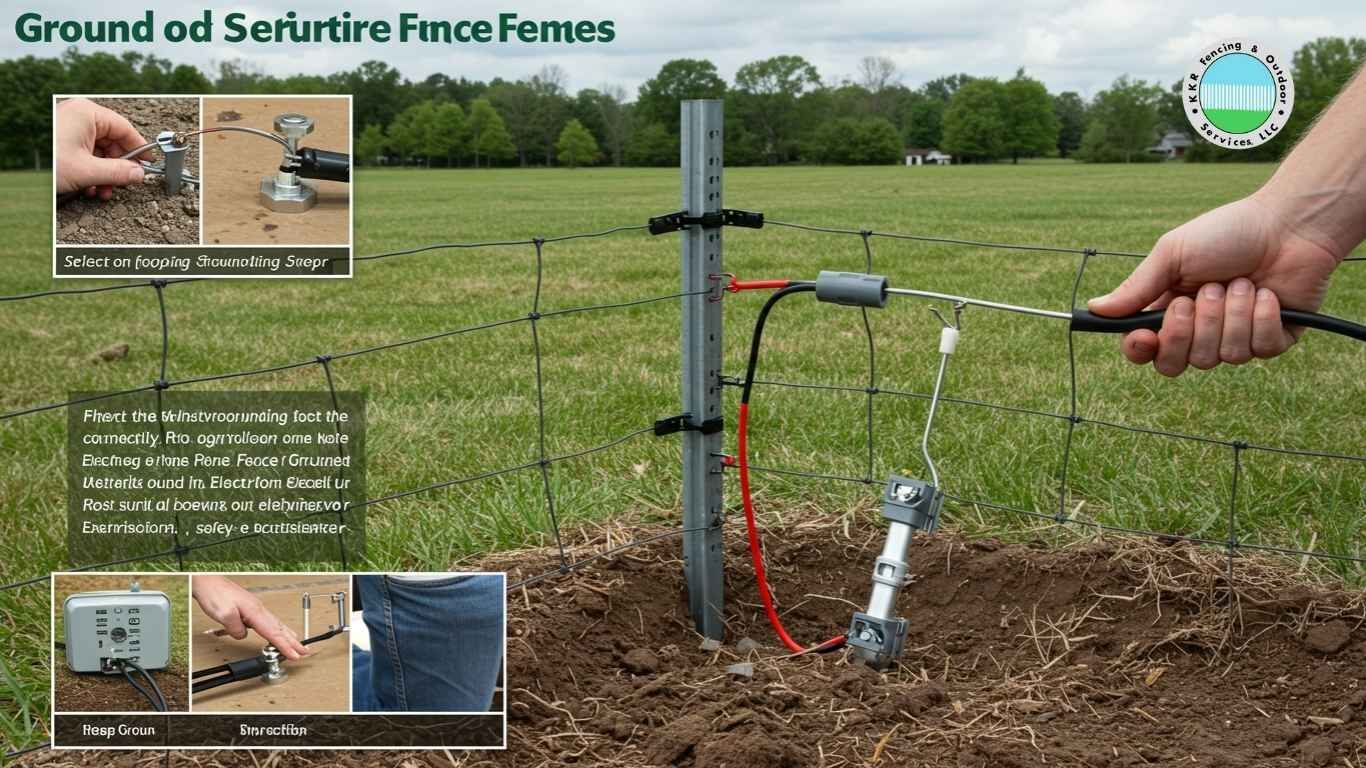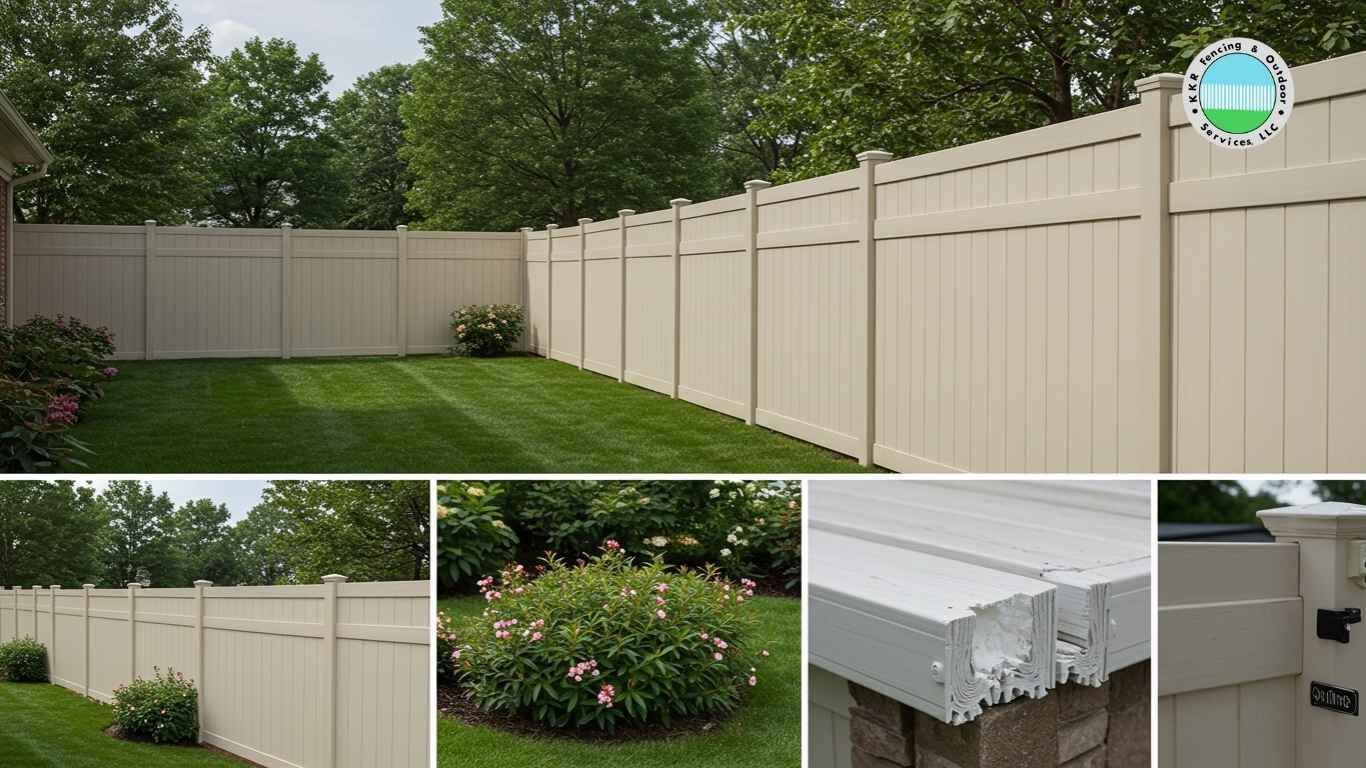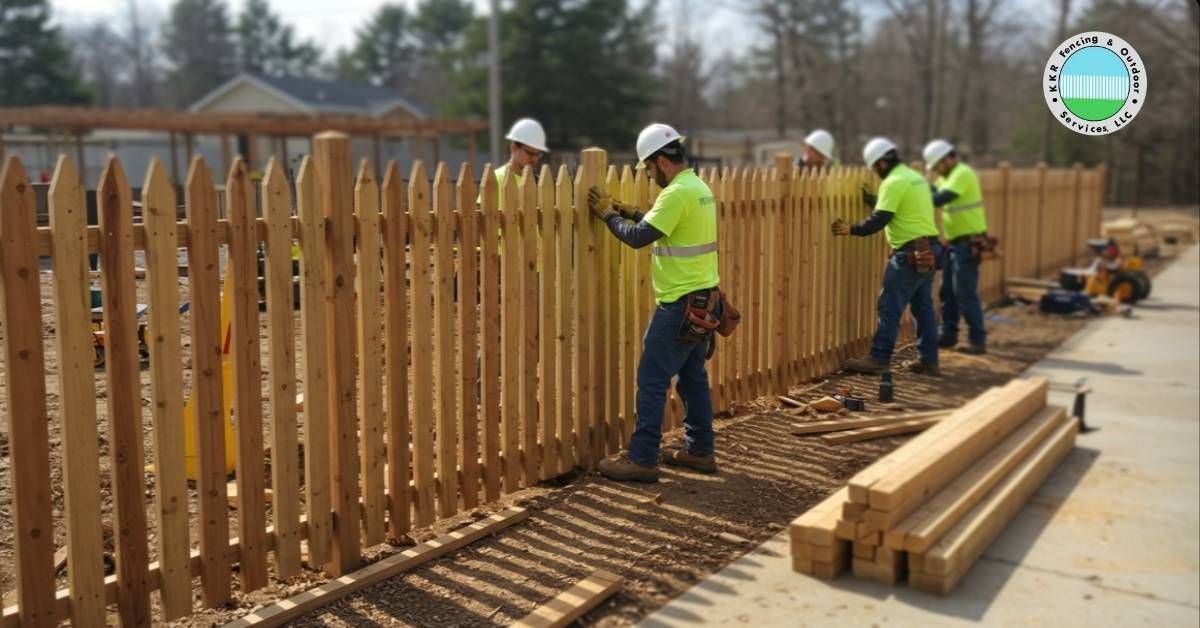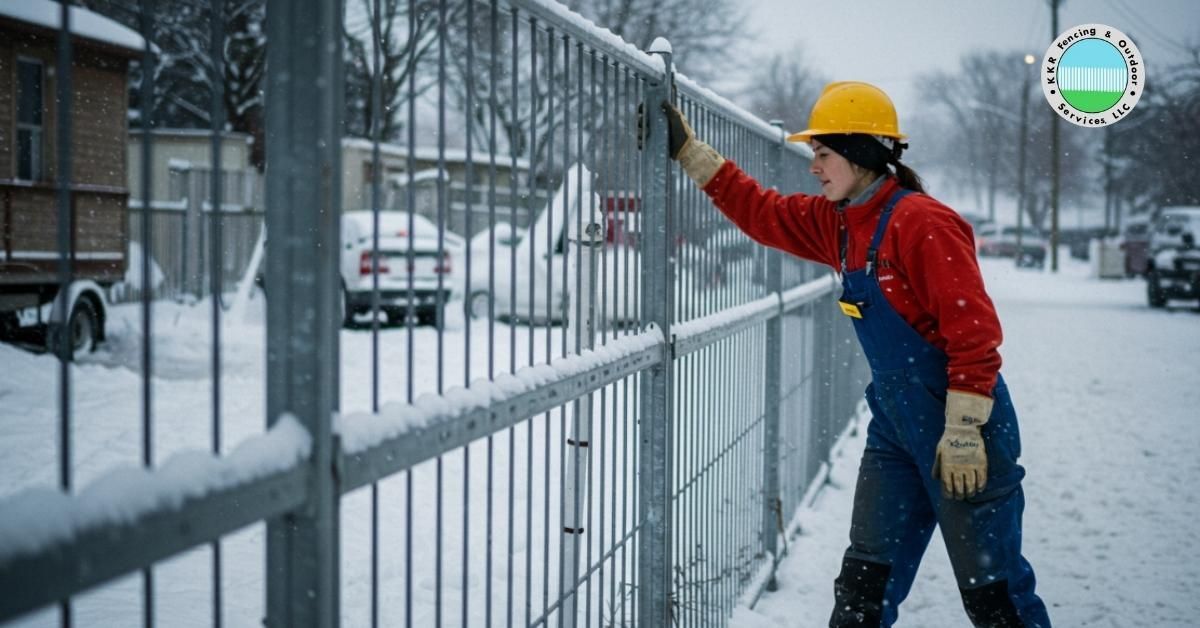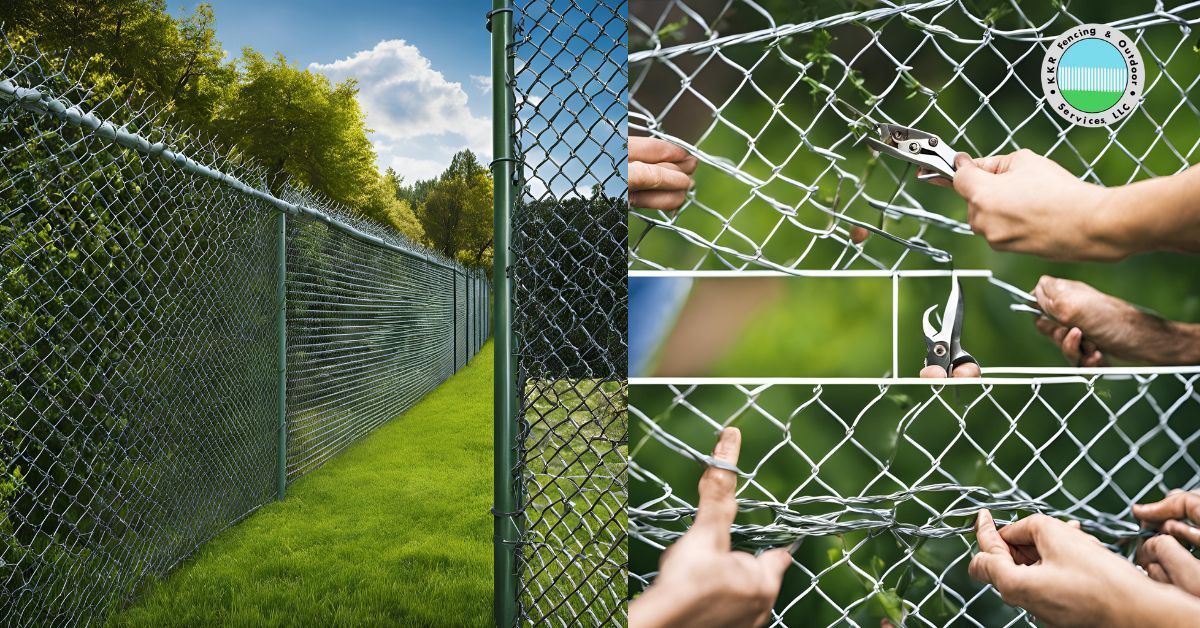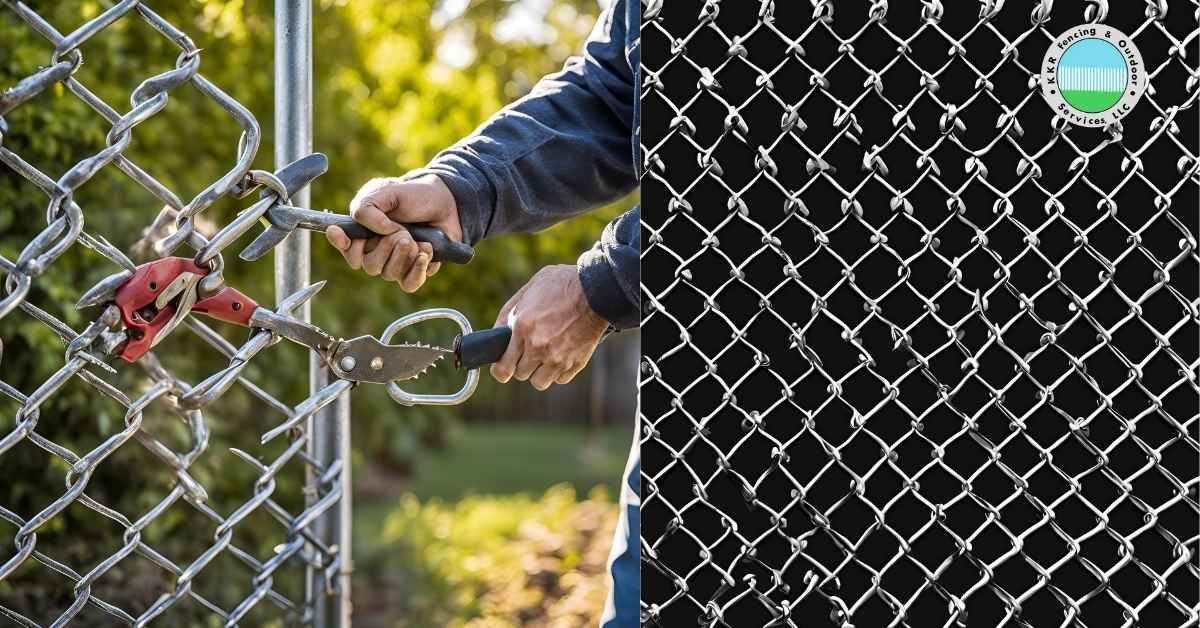Get Started On Your Fence Project | Call Today for a FREE Estimate
How Long Does a Vinyl Fence Last?
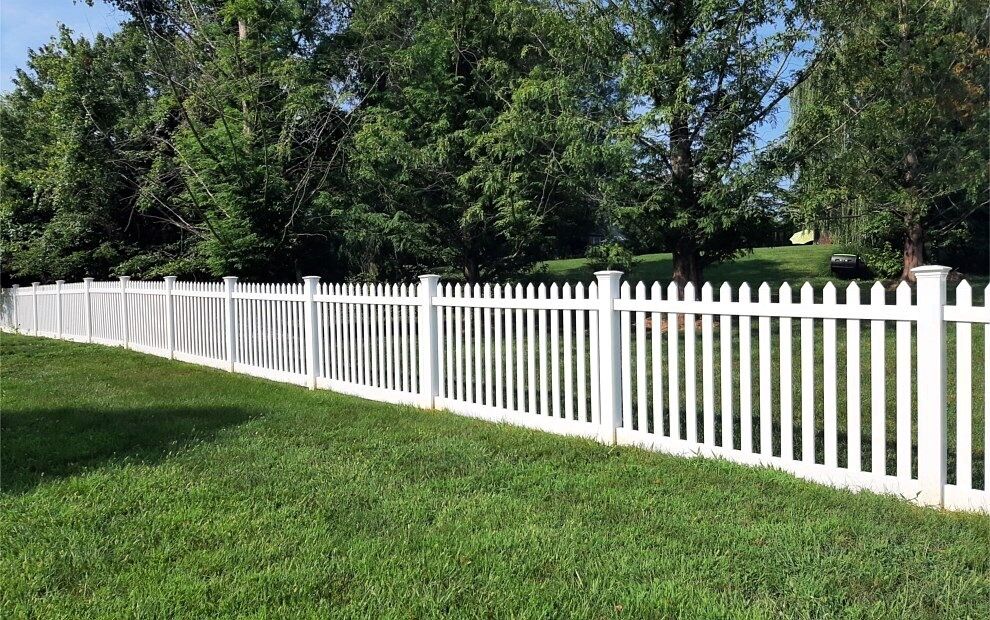
Vinyl fencing has become increasingly popular among homeowners for its durability, low maintenance, and aesthetic appeal. Unlike traditional wood or metal fences, vinyl fencing offers a modern and versatile option that can enhance the look of any property. This type of fencing is made from polyvinyl chloride (PVC), a durable plastic material known for its resilience and longevity. One of the most common questions potential buyers have is, "How long does a vinyl fence last?" In this comprehensive guide, we will explore the factors that influence the lifespan of a vinyl fence, compare it with other fencing materials, and provide tips for maintaining its longevity. By the end of this article, you'll understand why vinyl fencing might be the ideal choice for your home.
A properly installed and well-maintained vinyl fence can last 20 to 30 years, with some high-quality fences lasting even longer.
1. What is Vinyl Fencing?
Vinyl fencing, often referred to as PVC fencing, is a type of fence made from a synthetic plastic polymer. This material is known for its strength and flexibility, making it an excellent choice for fencing. Unlike wood, which can warp, rot, or succumb to pests, vinyl fencing is resistant to these issues. The manufacturing process involves mixing PVC with other ingredients to enhance its durability and resistance to UV rays. This means that vinyl fences maintain their color and structural integrity longer than other materials. Vinyl fencing comes in a variety of styles, including privacy fences, picket fences, and ranch rail fences, allowing homeowners to choose a design that best suits their property's aesthetics.
2. Factors Influencing the Lifespan of Vinyl Fences
The longevity of a vinyl fence is influenced by several key factors:
- Material Quality: The quality of the vinyl material is crucial for the fence's durability. High-quality vinyl often includes additives like UV inhibitors that protect the fence from sun damage and fading. This ensures that the fence retains its color and does not become brittle over time.
- Climate and Environmental Conditions: Vinyl fences are designed to withstand various weather conditions, but extreme climates can affect their lifespan. In regions with intense sunlight, the fence may experience fading or become brittle if not protected by UV inhibitors. In colder climates, extreme cold can make vinyl brittle, increasing the risk of cracking.
- Installation Quality: Proper installation is essential for maximizing the lifespan of a vinyl fence. Professional installation ensures that the fence is securely anchored and correctly aligned, preventing issues such as sagging or leaning. This stability is crucial for the fence to withstand environmental stresses, such as strong winds or heavy snow.
- Maintenance Practices: Although vinyl fences require less maintenance than wood or metal fences, regular cleaning and inspection are still important. Dirt, mold, and mildew can accumulate on the fence surface, affecting its appearance. Regular cleaning with mild soap and water can keep the fence looking new. Additionally, inspecting the fence for any damage and making repairs promptly can prevent small issues from becoming major problems.
3. Comparing Vinyl with Other Fencing Materials
Vinyl fencing offers several advantages over traditional fencing materials:
- Wood vs. Vinyl: Wood has been a traditional choice for fencing, known for its natural beauty and variety of styles. However, wood fences require regular maintenance, including painting, staining, and sealing, to protect against weathering, pests, and rot. In contrast, vinyl fencing requires little to no maintenance and does not suffer from these issues, making it a cost-effective long-term investment.
- Chain Link vs. Vinyl: Chain link fences are functional and affordable but often considered less aesthetically pleasing. They can also rust over time and may require repair or replacement. Vinyl fencing offers a more visually appealing alternative, available in various colors and styles, without the risk of rust or corrosion.
- Metal (Aluminum and Steel) vs. Vinyl: Metal fences, including aluminum and steel, are known for their durability and strength. However, they can be prone to rust, especially in humid or coastal areas. While both aluminum and steel can last a long time, they require more maintenance than vinyl to prevent corrosion. Vinyl fencing, being rust-resistant, offers a low-maintenance alternative that still provides durability and security.
4. Common Issues and How to Prevent Them
Despite its durability, vinyl fencing can face certain issues:
- Fading and Discoloration: While vinyl fences are more resistant to fading than other materials, prolonged exposure to sunlight can cause color changes. Choosing high-quality vinyl with UV protection can mitigate this issue. Additionally, selecting lighter colors can make fading less noticeable.
- Cracking and Warping: Extreme temperatures can cause vinyl to expand and contract, leading to potential cracking or warping. To prevent this, ensure the fence is installed with enough flexibility to accommodate these changes and avoid placing the fence in direct contact with heat sources.
- Impact Damage: Although vinyl is durable, it can be damaged by impacts from lawn equipment, falling branches, or heavy objects. Regularly inspect the fence for any signs of damage and address issues promptly to prevent further deterioration.
5. The Cost-Effectiveness of Vinyl Fencing
Vinyl fencing may have a higher initial cost compared to wood or chain link, but its long-term benefits often make it a more cost-effective choice. The lack of need for painting, staining, or regular repairs reduces ongoing maintenance costs. Additionally, many vinyl fences come with warranties that range from 20 to 50 years, offering long-term protection and peace of mind. The durability and low-maintenance nature of vinyl fencing make it an excellent investment for homeowners looking to enhance their property's curb appeal and value.
Conclusion
Vinyl fencing stands out as a durable, low-maintenance, and aesthetically versatile option for homeowners. With a lifespan of 20 to 30 years or more, a properly maintained vinyl fence can provide long-lasting beauty and functionality to any property. Whether you are looking for a privacy fence, a decorative picket fence, or a sturdy ranch rail fence, vinyl offers a solution that combines durability with minimal maintenance. By understanding the factors that affect the lifespan of vinyl fencing and taking steps to care for your fence, you can ensure that it remains a valuable and attractive feature of your home for many years to come.
FAQ Section
Q1: How long can a vinyl fence last with proper care?
A: A well-maintained vinyl fence can last between 20 to 30 years, with some fences lasting even longer, depending on factors such as climate, material quality, and maintenance practices.
Q2: What are the main benefits of choosing vinyl over wood for fencing?
A: Vinyl fencing offers numerous advantages over wood, including resistance to weathering, pests, and decay. It requires less maintenance, does not need painting or staining, and retains its appearance longer than wood.
Q3: Can vinyl fences withstand extreme weather conditions?
A: Yes, vinyl fences are designed to withstand a range of weather conditions, including extreme heat and cold. However, prolonged exposure to intense sunlight or extreme cold can affect the material's durability. High-quality vinyl with UV inhibitors can help prevent these issues.
Q4: How do I maintain my vinyl fence to ensure its longevity?
A: Maintaining a vinyl fence is straightforward. Regularly clean the fence with mild soap and water to remove dirt and mildew. Inspect the fence periodically for any damage and make repairs as needed. Avoid placing heavy objects against the fence and trim any nearby trees or shrubs that could cause damage.
Q5: Is vinyl fencing environmentally friendly?
A: Vinyl fencing is considered environmentally friendly because it is recyclable and has a long lifespan, reducing the need for frequent replacements. It also does not require harmful chemicals for maintenance, unlike wood, which may need preservatives and stains.
For reliable fencing services in New York, visit KKR Fencing NY.
If you’re looking to enhance your website’s SEO, connect with our partners at Pro Growe.
Call Now for a Free Estimate
We serve clients In Delevan, East Aurora, Erie County, Buffalo, NY And Beyond.
Nearby Location We Serve
Niagara Falls | Delevan | East Aurora | Erie County | Sanborn | Wheatfield | Tonawanda | Lockport | Basom | Indian Falls | Pembroke | Corfu | Darien Center | Batavia | Alexander | Attica Alden | Clarence | Warsaw | Arcade | Houghton | Springville | Gowanda | Dunkirk | Irving | Hamburg | Orchard Park |Blasdell | Amherst | Cheektowaga
All Rights Reserved | KKR Fencing & Outdoor Services LLC
